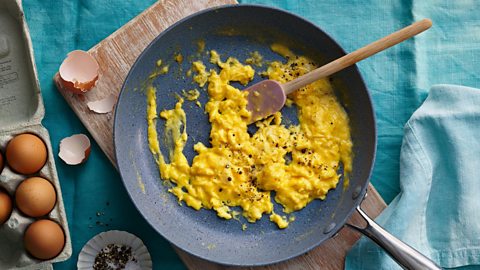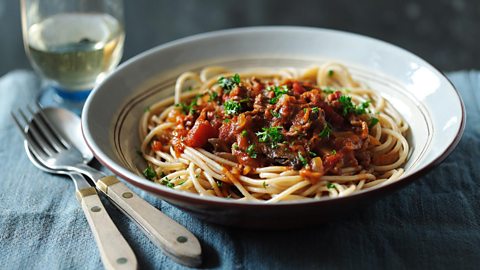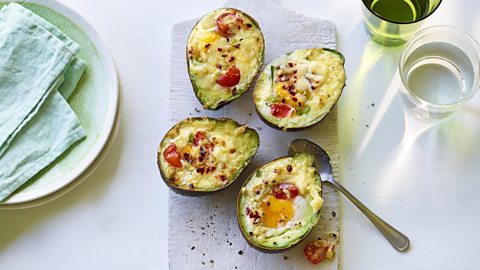Why protein isn’t the only nutrient fitness enthusiasts should focus on
While protein plays an important role in helping us achieve our fitness goals, neglecting other nutrients such as carbs could stop you from achieving those gains.
By Tai Ibitoye

During lockdown, I searched online for a home workout to try to improve my fitness levels. I came across a sponsored video challenging people to eat up to 30 eggs a day to ‚Äėboost protein intake, build muscle and improve fitness‚Äô. As a dietitian, I was shocked by the post and the numerous replies stating people were going to attempt it.
Time and time again, I come across nutrition and fitness social media posts making unsubstantiated claims on how upping your protein is the key to improving your physical prowess. I’m also frequently asked by clients, friends and relatives if focusing solely on protein is the best way to help them get the most out of their workout.
The answer I give is always the same. While there are many benefits of including protein in your diet, if you want to improve your overall health, fitness and performance, your diet needs to be well-rounded.
Here are the key nutrients you need to help maximise your workouts and improve fitness levels.
What is protein and why do fitness enthusiasts focus on it?
Protein is required for . It’s found in a wide range of whole foods such as chicken, lean meat, fish, dairy products (and fortified plant-based alternatives), nuts, beans, pulses (such as peas and lentils) and yes, eggs.
There is a misconception in the fitness world that to quickly gain bigger muscles and enhance performance, your diet needs to include a large amount of protein. This is not the case.
In the UK, most of us already consume enough protein. In fact, we than the recommended amount. On average, men need around 56g of protein a day while women require 45g (based on body weights of 75kg for men and 60kg for women). Yet, the National Diet and Nutrition Survey (NDNS) show UK men and women eat about .
How to make perfect scrambled eggs
Eggs are full of protein but you don’t need to eat loads in one sitting

The requirement for protein does increase with the volume and intensity of exercise and training. The suggests a daily intake of 1.4‚Äď2g of protein per kilogram of body weight for most exercising individuals looking to build and maintain muscle mass.
However, having a healthy and varied diet can provide enough high-quality protein to meet any increased protein demands. To put into context how easy it is to get enough protein in your regular diet, two medium eggs contain 11g of protein, a grilled chicken breast (about half the size of your hand) has roughly 38g, half a can of baked beans promises 10g and a bowl of Greek yoghurt served with granola and fruit includes about 20g.
Protein intake should be spread out evenly, every three to four hours across the day. The optimal time to consume protein is a matter of individual preference and tolerance. Although having a meal with good source of protein (or a snack with protein) after exercise might be beneficial, people don’t need to get too caught up on timings. The effects of exercise on muscle gain can last for 24 hours, so focusing on having regular meals throughout the day is key.
So, while there is a plausible explanation for protein receiving so much attention from fitness enthusiasts, high protein intake does not automatically equate to muscle gains. Without proper amounts of carbohydrate (which is our main source of energy), the body will use the protein as energy rather than use it to build muscle.
As for exercises that will help improve muscle growth, resistance exercises are great ‚Äď such as working with resistance bands or machines. Body weight exercises like push-ups, sit-ups and squats also work well, as does lifting weights ‚Äď or simply carrying heavy shopping bags.
Carbohydrates: fuel for fitness
Carbohydrates often get a bad rap, but they are crucial when you’re improving your exercise performance as they help deliver protein to muscles.
They are the body’s go-to source of fuel when training as they are stored in the muscle as glycogen. The body’s stores of glycogen are limited and need to be maintained each day, especially if exercising daily or at a high level.
Athletes need to have carbohydrates in their diet in the hours leading up to exercise, during and after. The amount people need will depend on the type, duration, intensity and frequency of their activity, as well as their dietary goals.
For the average gym-goer or those who participate in general fitness activities, carbohydrate needs can be met by following general healthy eating guidelines. Starchy foods (like potato, bread and pasta) give us , and it‚Äôs recommended these make up just over a third of our meals. By choosing wholegrain options where possible ‚Äď like oats, brown rice, wholemeal bread and wholewheat noodles and pasta ‚Äď you will have a steady release of energy (not to mention get some extra fibre onboard).
Healthy spaghetti bolognese
Wholewheat pasta contains slow-release carbs which will help your energy levels when you’re exercising

If you’re involved in moderate and high-volume training (such as training for a marathon) you might require higher amounts of carbohydrate. In that case, seek tailored nutrition information from a qualified expert in sports nutrition to help fine-tune your diet to meet your individual needs.
A diet low in carbohydrate can lead to reduced energy during exercise, fatigue and delayed recovery. Try eating a carbohydrate-rich, low-fat snack or light meal two to three hours before exercise ‚Äď and eat again as soon as possible afterwards. Some examples include porridge topped with fruits, a pasta dish that incorporates vegetables and protein like chicken or beans, a hummus sandwich, or egg fried rice with vegetables.
Don’t ignore healthy fats
High-fat diets for athletic performance are becoming increasingly popular on social media. However, the evidence regarding how effective they are at improving fitness levels is limited and mixed ‚Äď more research is needed. Having said this, fats do play a role in a balanced diet, but we only need a small amount.
Fat provides the body with fuel, essential fatty acids and helps with absorption of fat-soluble vitamins like vitamin D. The recommended daily amount of fat to consume each day depends on an individual’s dietary requirements, training status or goals.
Avocado eggs
Avocados are regarded as a good source of ‚Äėhealthy‚Äô fats ‚Äď and you could combine them with eggs for added protein

As recommended by the NHS, (think butter and fatty meats, for instance) for unsaturated fats such as oily fish, avocados, nuts and seeds is more beneficial for general health.
Hydration matters
Maintaining good hydration levels is just as important as your nutrition when it comes to fitness performance. It’s recommended that individuals are as preventing dehydration is effective in supporting exercise capacity and optimising recovery post-workout.
General guidelines suggest people drink of fluid a day, but you should drink more if exercising, especially in hot environments. Most people should aim to drink enough during the day so their pee is a clear, pale yellow colour.
The type of fluid to consume depends on the intensity and duration of the physical activity. In most cases, water is the best choice for training at low to moderate intensity for less than an hour when sweat losses are low. For those who are training at a higher intensity and for a longer duration (more than one hour), the sweat losses are greater. Therefore, drinking isotonic sports drinks or a homemade sports drink (200ml fruit squash, 800ml water and a pinch of salt) is ideal for rehydration, refuelling and replacing lost electrolytes.
However, it is important to remember that most sports drinks are like other soft drinks and contain added sugars. This means that they can be high in calories and contribute to tooth decay, so be wary of drinking them in large volumes.
Please note: These are general guidelines about nutrition. Information is not intended as a substitute for proper medical diagnosis or dietary advice provided by your dietitian. Always seek advice from a dietitian for tailored dietary advice and support before making changes to your diet, especially if you have a medical condition.
Originally published September 2023.